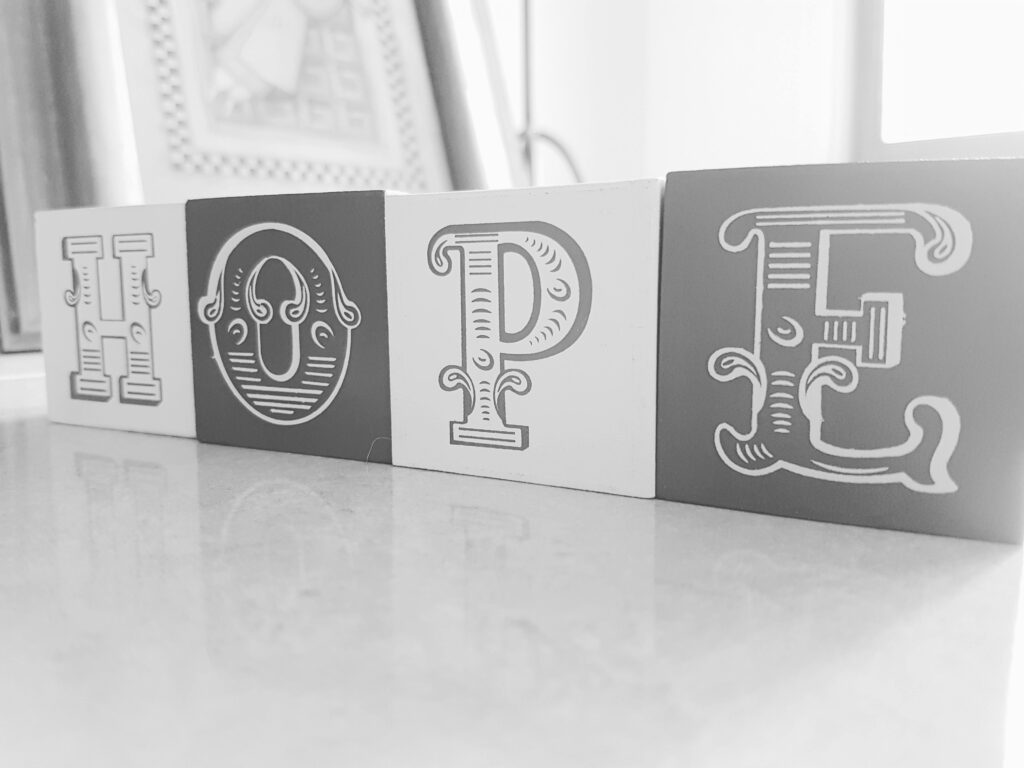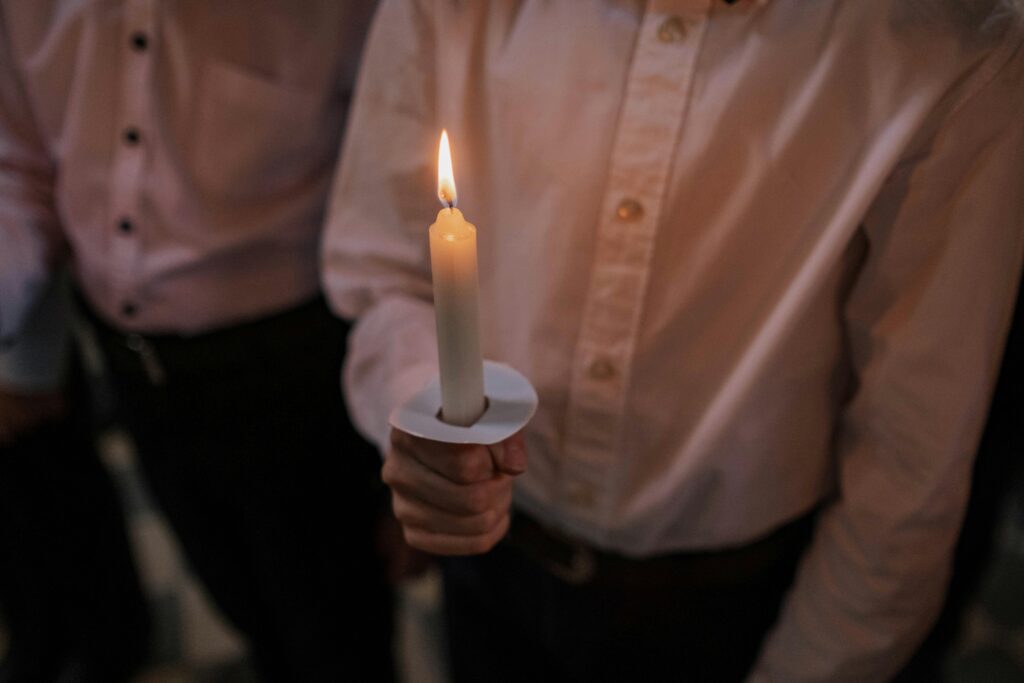Tangible Signs of Jubilee Hope: The Power of Gospel Nonviolence
“During the Holy Year, we are called to be tangible signs of hope for those of our brothers and sisters who experience hardships of any kind.” Pope Francis, Bull of Indiction of the Ordinary Jubilee of the Year 2025

As we enter the Jubilee Year, our attention is at the same time riveted by contrasting scenes of horrific, almost surreal violence – in the Holy Land, in Ukraine, in Sudan, in the Democratic Republic of Congo, in schools, homes, and public spaces, but also in the lack of access to a decent quality of life for millions of people as wealth and power are increasingly concentrated in the hands of a few; in the suffering of millions of displaced persons and refugees; in the terror of racism; in militarization, the production and marketing of weapons, gun violence, domestic violence, gangs and cartels; and in the devastation of the natural world.
Yet, hope is the central message of the 2025 Jubilee Year. And in his 2025 World Day of Peace message (WDP), Pope Francis lays out a direct challenge to incorporate into the Jubilee Year specific, deep changes to the way the world is now working: “Sporadic acts of philanthropy are not enough,” he says. Cultural and structural changes are necessary, so that enduring change may come about. (WDP 2025 #4)
The Jubilee is calling for nothing less than a paradigm shift to a world where right relationships between humans and the earth shape domestic affairs, international relations, and the global economy, fueling a transformation of pervasive direct and structural violence into a more just and peaceful world. It is a massive and demanding shift, but urgently needed. Ethical relationships among humans and with the rest of creation are essential to the new world order we seek. And well-organized action is the only way to accomplish the deep transformation Jubilee promotes. Pope Francis, quoting Bishop and former president of Pax Christi Italy, Tonino Bello, reminds us that “We cannot be content to hope; we have to organize hope”.
Taking the promise of Jubilee seriously requires a profound, deeply-grounded conversion as people, as Church, as the human family from the lure of violence and the tsunami of suffering it creates to a more humane order. In short, Jubilee urges a conversion to Gospel nonviolence.
In the midst of a global culture of violence, what Pope Francis has named “the Third World War fought piecemeal,” the Church has increasingly rediscovered the centrality of nonviolence to the vision of Jesus and the mission of the Church. Pope Francis himself has called us to the nonviolent way many times over the course of his papacy. Organizing hope entails this conversion to Gospel nonviolence. With this growing awareness in the Church, we come to see that at the very core of Jubilee is a nonviolent path: resolutely standing against violence and every injustice and courageously building a world where the dignity and well-being of all, especially the most excluded and marginalized, are respected.
The 2025 Jubilee is a call to plant the seeds of Gospel nonviolence throughout the Church and the world as we prepare for this long-term shift; a Jubilee Church will bring the Good News of Gospel nonviolence to a hurting world through every person, parish, diocese, religious order, and ministry.
The Jubilee vision at the heart of the Judeo-Christian tradition speaks clearly to the reality of our broken world where direct, economic, cultural, structural and ecological violence has become a way of life. Sabbath, Sabbatical Year, Jubilee are rooted in right relationships between people and the earth. Neither was to be exhausted or exploited; both could find space to thrive in an economy defined by abundance and human self-limitation. Repeatedly we were reminded to restore the land periodically; to let it lie fallow; to return it to the ones whose roots were planted there, whose futures were intrinsically intertwined with its rocks and soil, and shaded by its growing things. The fruit of the earth, a gratuitous gift of God, was never, ever to be hoarded.
Jesus made Isaiah’s words his own at the beginning of his ministry, presenting himself as the fulfillment of the “year of the Lord’s favour” (cf. Lk 4:18-19). Just as Jesus “taught his disciples to love their enemies (cf. Mt 5:44) and to turn the other cheek (cf. Mt 5:39),” marking out the path of nonviolence, there is no theme more common to Jesus’ storytelling than Sabbath-Jubilee. Together, nonviolence and Sabbath-Jubilee provide a powerful foundation for the Gospel message.
In light of this history and the realities we face today, Pope Francis has made three specific proposals in the context of the 2025 Jubilee Year:
- Debt cancellation and “a new financial framework … leading to the creation of a global financial Charter based on solidarity and harmony between peoples” (WDP #11)
- Elimination of the death penalty in all nations.
- Establishment of a Global Fund from a “fixed percentage of the money earmarked for armaments” to “eradicate hunger and facilitate in the poorer countries educational activities aimed at promoting sustainable development and combating climate change.”
Over the past century, we have seen the power of nonviolent change. Now, in this time of crisis, the Church can help the People of God unleash this power and organize hope.
The possibility of transformational change—including debt cancellation, an end to the death penalty, spending on human and environmental needs rather than armaments—is a claim on hope, good news of great joy, and a basis for peace on earth. The 2025 Jubilee is a time for deepening and broadening our journey of Gospel nonviolence as tangible signs of hope. “Brothers and sisters, let us bring this outlook of hope to our world”
Marie Dennis . Senior Programme Director, Catholic Nonviolence Initiative (CNI)

Related

Cardinal Arizmendi: Beware of Artificial Intelligence!
Felipe Arizmendi
09 April, 2025
5 min

Revolutionize Celebrations
Mar Dorrio
09 April, 2025
2 min

Reasonable Answers About Our Faith
Mario J. Paredes
09 April, 2025
5 min

Sensitivity in a Managerial Key: The Forgotten Muscle of Meaningful Leadership
Alejandro Fontana
08 April, 2025
3 min
 (EN)
(EN)
 (ES)
(ES)
 (IT)
(IT)

